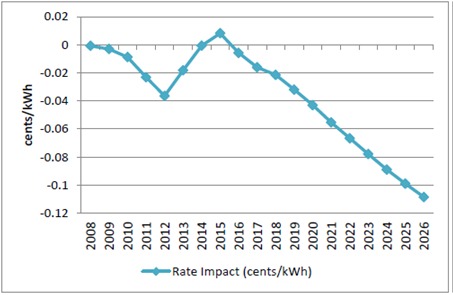 North Carolina does not have a single utility-scale wind project online, and if a recently introduced bill is passed, that may be the case for a very long time. New legislation proposed in the state's House of Representatives would repeal North Carolina's renewable portfolio standard (RPS), the major driver of renewable energy development in the state.
North Carolina does not have a single utility-scale wind project online, and if a recently introduced bill is passed, that may be the case for a very long time. New legislation proposed in the state's House of Representatives would repeal North Carolina's renewable portfolio standard (RPS), the major driver of renewable energy development in the state.
Although there have been similar efforts to repeal RPS mandates in other states, the attempt in North Carolina is particularly troubling for the U.S. offshore wind energy sector, which is still struggling to take off.
North Carolina's Renewable Energy and Energy Efficiency Portfolio Standard, passed in 2007, is 12.5% by 2021 for investor-owned utilities and 10% by 2018 for electric cooperatives and municipal utilities. The authors of the bill, dubbed the "Affordable and Reliable Energy Act," say the state's RPS is raising energy costs for North Carolina consumers.
However, a recent study found that North Carolina's clean energy policies – including the RPS – will actually save customers over the long run. According to the study, electricity rates will peak in 2015 and then decline through 2026, ultimately saving customers $173 million.
The study also found that between 2007 and 2012, clean energy resulted in $1.7 billion in economic benefits to North Carolina and generated $2.56 billion in spending in the state's economy.

North Carolina is also a hub for clean energy jobs. The state is home to more than 1,100 companies serving the clean energy industries, and while the broader North Carolina economy lost more than 100,000 jobs between 2007 and 2012, the state gained 21,162 clean energy jobs during the same period, the study also found.
According to the American Wind Energy Association, there are at least 18 facilities in North Carolina that manufacture components for the wind energy industry. For instance, PPG Industries, a supplier of fiberglass to the wind energy industry, has two factories that employ hundreds of workers in the state.
Offshore wind
Despite North Carolina's lack of large-scale wind farms, the proposed legislation could have significant ramifications for the wind energy industry. A repeal of the RPS would likely lessen demand for offshore wind in North Carolina, which has been found to have some of the best potential for the nascent industry.
A comprehensive study commissioned by then-Gov. Bev Perdue found that North Carolina has the best offshore wind resource on the East Coast. In fact, 26% of the East Coast's entire offshore wind resource is located in an area of less than 30 meters of water.
According to Betsy McCorkle, director of government affairs at the North Carolina Sustainable Energy Association (NCSEA), North Carolina's highly regulated electricity market limits opportunities for newer energy technologies, such as offshore wind. Repealing the RPS, she says, would only exacerbate that problem.
"North Carolina has a highly regulated electricity market, where only utilities can sell power directly to consumers," McCorkle said in a statement. "This monopoly control of our utilities limits innovation and market competition. However, the Renewable Energy and Energy Efficiency Portfolio Standard – the portion of Senate Bill 3 that House Bill 298 attempts to eliminate – was the first real opportunity for clean energy companies to compete with the utilities and offer consumers a choice."
The bill would also eliminate all funding for renewable energy research, further limiting the ability of offshore wind to compete with more established technologies.
The legislation has support from about 20 co-sponsors, McCorkle tells NAW. Despite backing from state lawmakers, however, it is unlikely that the state's voters will support the bill: Recent poll results released by NCSEA found that 69.7% of North Carolina voters are in favor of the state's RPS program. Moreover, 80.9% of those polled support onshore wind, and 75.8% support offshore wind.
McCorkle says it's too early to tell whether the legislation has enough votes to pass, nor if Gov. Pat McCrory would sign it. The bill still must travel through a number of committees before going up for a vote.



